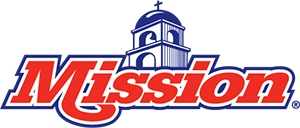The Board of Directors concluded that Mr. Bershad should serve as a director based on his substantial business, investment banking, and board and management experience with both public and private companies, including serving as Chairman of the board of directors of several public corporations.
Luis A. Gonzalez – Class II:
Luis A. Gonzalez has served on our Board of Directors since 2011. Mr. Gonzalez is a private investor in real estate and other ventures. Previously, Mr. Gonzalez founded Austral Group S.A., Peru, which was the second largest fishing and marine based food producer in Peru. Mr. Gonzalez also founded Camposol S.A., a leading agroindustrial company in Peru. Mr. Gonzalez also co-founded Grupo Arato in 2011, which the Company acquired in 2018. Previously, Mr. Gonzalez also served as a director of our wholly-owned Peruvian subsidiaries – Grupo Arato Holding S.A.C., Beggie Peru S.A., Arato Peru S.A., Inversiones Agricolas Olmos S.A.C., and Avocado Packing Company S.A.C.– until November 24, 2021. In 2007, Mr. Gonzalez was honored with the “Comendador por Servicios Distinguidos” medal by the President of Peru for his contributions to the country.
Mr. Gonzalez studied mechanical engineering at Saarbrücken Fachhochschule in Germany.
The Board of Directors concluded that Mr. Gonzalez should serve as a director based on his extensive business and leadership experience in the avocado and agroindustrial industries and his first-hand knowledge of avocado farming and packing operations in Peru.
Shaunte D. Mears-Watkins - Class II:
Shaunte D. Mears-Watkins has served on our Board of Directors since December 2021. Ms. Mears-Watkins is an independent advisor. Previously, she served as the Chief Commercial Officer of Clif Bar & Company, a leading maker of energy and nutrition foods, from June 2021 to May 2022. Previously, Ms. Mears-Watkins held senior roles of increasing responsibility in marketing, sales, and strategy at The Clorox Company (NYSE: CLX), a global manufacturer and marketer of household goods, food, pet care, and commercial cleaning products, from 2005 to 2008 and again from 2009 to 2021. From 2008 to 2009, Ms. Mears-Watkins was a Global Category Manager at Bare Escentuals Beauty, Inc., a retail cosmetics and personal care company. Ms. Mears-Watkins has served on the board of the Alameda County Community Food Bank since February 2022.
Ms. Mears-Watkins received a Bachelor of Arts degree from Stanford University and a Master of Business Administration degree from Harvard Business School.
The Board of Directors concluded that Ms. Mears-Watkins should serve as a director based on her broad commercial and marketing experience in the food and consumer products industries and her expertise in global branding and strategy.
Jay A. Pack- Class I:
Jay A. Pack has served on our Board of Directors since 2008. Mr. Pack is the former owner of Standard Fruit and Vegetable, an integrated re-packer, logistics, and value-added produce company, which was sold to Del Monte in 2003. He served on the board of Coastal Sunbelt Produce, a private foodservice distributor serving the Mid-Atlantic states, from 2014 to March 2022 when Coastal Sunbelt was acquired by Sysco. Previously, Mr. Pack served on the boards of Misionero and Earthbound Farm and Combs Produce. He has also previously served as a trustee of Sarah Lawrence College, a board member of the Produce Marketing Association (PMA), Chairman of the PMA Foodservice Division, and as President of the North Texas Food Bank.
Mr. Pack received a Bachelor of Science degree from Boston University and a Master of Business Administration degree from Southern Methodist University.
The Board of Directors concluded that Mr. Pack should serve as a director based on his broad knowledge of the produce industry and his extensive business and leadership experience with various produce companies and agricultural industry groups.
Bruce C. Taylor – Class II:
Bruce C. Taylor has served on our Board of Directors since 2001. Mr. Taylor founded Taylor Fresh Foods, a private multi-billion dollar producer of salads, fresh vegetables, and healthy fresh food, in 1995 and serves as its Chairman and Chief Executive Officer.
Mr. Taylor received a Bachelor of Science degree (Business) and a Bachelor of Arts degree (Development Studies) from the University of California Berkeley and a Master’s in Business Administration from Harvard University.
The Board of Directors concluded that Mr. Taylor should serve as a director based on his extensive business and industry knowledge and his long tenured leadership and management experience in the agriculture and farming sectors at Taylor Fresh Foods.




















